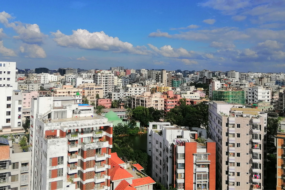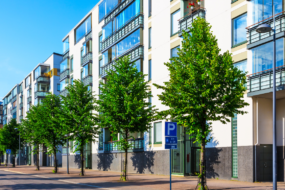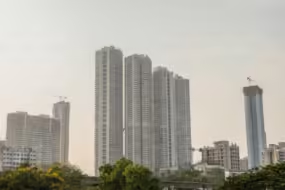Niranjan Hiranandani, Chairman of Hiranandani Group & Naredco
The budget’s strategic focus on skilling through private sector internships and CSR-funded training, will enhance youth employability and drive economic growth. The Rs 11.11 lakh crore capex allocation for infrastructure development will have a multiplier effect on the real estate sector. The government’s holistic approach to sustainable development including initiatives for solar and renewable energy, water management and solid waste management aligns well with industry’s goal of climate -resilient real estate development.
Boman Irani, President Credai National
The budget’s focus is on education, skilling, MSMEs and the middle class with women, youth and farmers as key stakeholders in achieving the vision of ‘Viksit Bharat’. The allocation of Rs 10 lakh crore for Construction of additional 3 crore urban and rural houses for the middle class will help enhance ease of living and dignity for crores of Indians, showing the government’s commitment for ‘Housing for All’. The Rs 11.11 lakh crore capex for infrastructure will further propel growth through enhanced connectivity. Further, the credit guarantee schemes for MSMEs in the manufacturing sector and a Rs 100 crore guarantee cover will position India as a manufacturing hub, benefiting industrial real estate.
Arshdeep Sethi, President RMZ Real Estate
The substantial investment on infrastructure aims to cultivate a conducive environment for developers, investors and infrastructure firms to thrive and innovate. The transit-oriented development plans for 14 large cities promote the development of mixed-use property around transit hubs, leading to increased real estate activity and better urban planning. Additionally, investment-ready ‘plug & play’ industrial parks and dormitory -style housing for industrial workers will attract industrial investments leading to increased demand for industrial real estate. Streamlining of FDI regulations is set to drive more institutional investments and the focus on affordable housing will improve the urban infrastructure, attracting more investments.
Kalyan Chakrabarti, CEO, Emaar
The budget lays a robust foundation for a dynamic, inclusive and sustainable urban housing environment, ensuring long-term benefits for all stakeholders. Making affordable loans more accessible will effectively help people in achieving the dream of home ownership. A fair rental housing system will create more trustworthy and balanced housing market. The focus on development of key civic infrastructure like sanitation, sewage treatment and solid waste management, will enhance the quality of life.
Ashwinder R Singh, CEO Residential, Bhartiya Urban and Co-Chair CII NR Real Estate
Post-budget, the focus on affordable housing through initiatives like PMAY Urban 2.0 and the substantial allocation for urban housing will drive demand and stimulate construction activities, benefitting developers. The emphasis on rental housing for industrial workers and infrastructure investments will enhance urban development and industrial growth, creating robust opportunities in the real estate sector. These measures, coupled with eased FDI norms, will bolster investor confidence and catalyze sectoral growth.
Abhinandan Lodha, Chairman, The House of Abhinandan Lodha
The budget marks a significant shift towards holistic growth, focusing on affordable housing. The allocation of Ts 2.2 lakh crore for constructing 1 crore urban and 2 crore rural homes demonstrates the government’s commitment to improve living standards. This together with push to infrastructure development will generate substantial employment opportunities and bolster ancillary industries. The allocation of Rs 10 lakh crore for PMAY alongside rationalization of stamp duty, digitization of land records and Rs 10 trillion allocation for tourism and cultural corridor development is poised to invigorate the real estate sector.
Shishir Baijal, Chairman, Knight Frank India
The budget presents the government’s commitment towards long-term social and infrastructure development as the 11.11 lakh crore outlay for infra development, will continue to support development of railways, roads and the overall logistics infra. The provision for 12 industrial parks is a massive undertaking with the potential to grow economic hubs and boost real estate development along their alignment. The 1.48 lakh crore outlay dedicated to employment generation should help boost incomes for homebuyers in the affordable segment. Further, measures taken to boost affordable housing under PMAY, rental housing and planned regulatory framework will have a positive impact on real estate.
Anshul Jain, Chief Executive India, SE Asia & APAC Tenant Representation C&W
The budget prioritizes laying a strong foundation for future growth with focus on infra development, affordable housing and initiatives focused on land reforms, regulatory relaxations and financial incentives. The abolition of angel tax and reduction in corporate tax on foreign companies are particularly encouraging for startups and global capability centres (GCCS) , all of which have been big drivers of commercial real estate. The reduction of LTCG on housing sales from 20 percent to 12.5 percent and removal of indexation benefits would have a short-term impact on the investment demand for residential units. However, considering the strong end-user demand and overall economic growth, this may not have a material impact on residential sales.
Mohit Jain, MD, Krisumi Corporation
Urban centres being the drivers of growth, more homes under PMAY(U) , transit-oriented development , creative redevelopment of cities , development of industrial parks , rental housing for industrial workers, digitization of land records and call for moderation in stamp duty , are some of the measures taken in the budget that will usher Indian cities towards the path of modernization. This will help enhance livability, enabling cities to emerge as growth and employment centres.
Anuj Puri, Chairman, Anarock Group
From a real estate point of view, the budget stands out with the government’s continued focus on infra development with a huge allocation that will help drive real estate growth. The focus on rural and urban job creation together with a boost to affordable housing under PMAY with massive Rs 10 lakh crore funding and credit-linked subsidy, will help stir up housing demand, not just in top 7 cities but also in Tier 2 & 3 cities. The brownfield redevelopment of cities under PPP mode lays opens opportunities for real estate development.
Badal Yagnik, CEO Colliers India
Housing continues to be one of the focus areas in the budgetary announcements. The allocation of Rs 10 lakh crore for development of 3 crore additional houses, will drive construction in urban and rural areas with cascading effect on allied sectors. PPP financing and VGF for rental housing will help in meeting the housing needs of the poor by supplementing the government’s efforts . Announcements related to infra development should provide opportunities for all real estate stakeholders.
Samir Jasuja, Founder & CEO, PropEquity
While the budget sidesteps the long-standing demands of the real estate sector, the focus on job creation, skilling and employment linked incentives, boost to infra, urban redevelopment and relaxation in personal income tax , will indirectly provide a fillip to the real estate sector. The call to state governments to reduce stamp duty and initiate land-related reforms including urban planning, building bylaws and GIS mapping of land records, will help the sector and propel growth.





